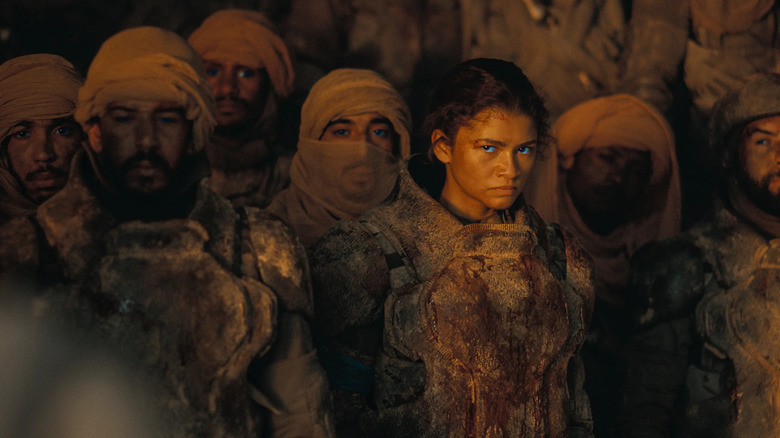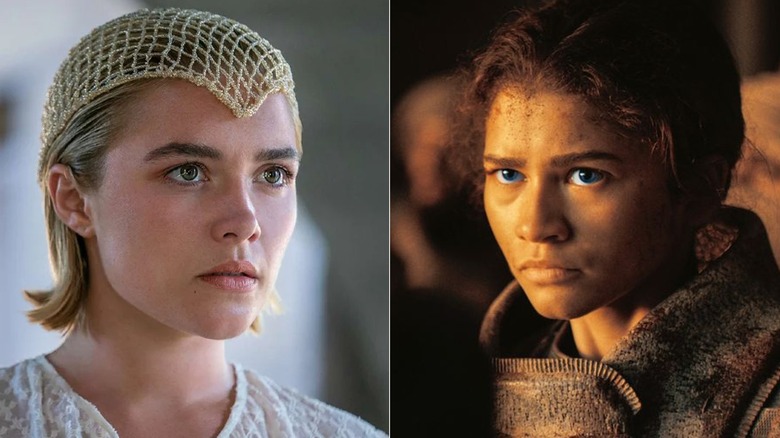The Dune Messiah Movie Already Has One Big Advantage Over The Book
This post contains spoilers for the book "Dune: Messiah."
The adaptation of "Dune: Messiah" has already been approved, but we've long wondered just how the hell director Denis Villeneuve is going to pull it off. Not only is there a 12-year time jump, and not only are major characters like Jessica unceremoniously dropped from the narrative, but the book also features a lot of political feuding that will probably have to be cut for the movie to feel even vaguely comprehensible.
For screenwriter Jon Spaihts, however, there are plenty of reasons to stay optimistic. The big one is that "Dune: Part 2" has already made a ton of changes to the narrative to make a better transition into "Messiah," and he thinks those changes are going to pay off big time going forward. As he explained in a recent interview with Mashable:
"I think [author] Frank Herbert came away from [Dune] troubled a little bit that perhaps he had put too much of a real crown on his savior he was trying to warn people about ... So, 'Dune Messiah' really is his reply to himself and his reply to 'Dune.' It's like the second act of 'Into the Woods' where everything falls apart, and the shadows of everything reveal themselves."
Spaihts' interpretation of "Messiah" is a popular one. The 300-page book, which is also the rare sequel that's less than half the length of the original, reads almost as an extended epilogue to the first novel, or perhaps a counter-argument to it. The book shows us what Paul's reign as Emperor actually looks like (it's a mixed bag at best!), and shows us how this reign collapses in on itself with surprising speed. It very much feels like a reaction to the fans' straightforward hero worship of Paul after the first book, which Herbert hadn't intended.
Irulan vs Chani
But whereas "Dune: Messiah" felt like a correction to the previous novel, a necessary clarification of the original book's themes, "Dune: Part 2" has already made those themes much clearer. The movie turns Jessica into a more explicitly diabolical character and turns Chani into a mouthpiece for the source material's more subtle anti-Messiah themes. By having Chani reject Paul at the end — whereas book Chani is happy to go along with Paul's reign, Holy War and marriage to Irulan included — "Part 2" makes the book's warning about the dangers of savior figures impossible to miss. As Spaihts put it:
"The lovely thing is that the way Denis has shaped the end of 'Dune: Part Two' has set the table even better than the novel does for the coming machinations of 'Dune: Messiah,' where we'll see Chani and Princess Irulan clashing over the destiny of the Atreides family."
It's a quote that implies a ton about how "Dune: Part 3" will play out. It promises that Florence Pugh's Irulan, who's treated largely as an afterthought in "Messiah," will have a more prominent role, and that Zendaya's Chani will continue to heavily interact with Paul despite no longer being his concubine. Spaihts has painted a picture of a movie where Chani plays the angel on Paul's shoulder, and Irulan (not Jessica this time) plays the devil on his other. It sounds like a fascinating new dynamic; let's hope we don't have to wait too long to see it in theaters.

